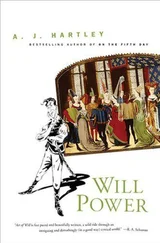James Walsh - Health Through Will Power
Здесь есть возможность читать онлайн «James Walsh - Health Through Will Power» — ознакомительный отрывок электронной книги совершенно бесплатно, а после прочтения отрывка купить полную версию. В некоторых случаях можно слушать аудио, скачать через торрент в формате fb2 и присутствует краткое содержание. Жанр: foreign_prose, psy_theraphy, foreign_edu, foreign_antique, на английском языке. Описание произведения, (предисловие) а так же отзывы посетителей доступны на портале библиотеки ЛибКат.
- Название:Health Through Will Power
- Автор:
- Жанр:
- Год:неизвестен
- ISBN:нет данных
- Рейтинг книги:5 / 5. Голосов: 1
-
Избранное:Добавить в избранное
- Отзывы:
-
Ваша оценка:
- 100
- 1
- 2
- 3
- 4
- 5
Health Through Will Power: краткое содержание, описание и аннотация
Предлагаем к чтению аннотацию, описание, краткое содержание или предисловие (зависит от того, что написал сам автор книги «Health Through Will Power»). Если вы не нашли необходимую информацию о книге — напишите в комментариях, мы постараемся отыскать её.
Health Through Will Power — читать онлайн ознакомительный отрывок
Ниже представлен текст книги, разбитый по страницам. Система сохранения места последней прочитанной страницы, позволяет с удобством читать онлайн бесплатно книгу «Health Through Will Power», без необходимости каждый раз заново искать на чём Вы остановились. Поставьте закладку, и сможете в любой момент перейти на страницу, на которой закончили чтение.
Интервал:
Закладка:
The first of the month was some ten days away. Stokes said to his students, though of course not in the hearing of the patient, that there was not a chance in the world, considering the old soldier's physical condition, that he would live until the first of the month. Every morning, in spite of this, when they came in, the old man was still alive and there was even no sign of the curtains being drawn around his bed as if the end were approaching. Finally on the morning of the first of the month, when Stokes came in, the old pensioner said to him feebly, "Docther, the papers are there. Sign them! Then they'll get the pension. I am glad you kept me alive, for now they'll surely have the money to bury me." And then the old man, having seen the signature affixed, composed himself for death and was dead in the course of a few hours. He had kept himself alive on his will because he had a purpose in it, and once that purpose was fulfilled, death was welcome and it came without any further delay.
There is a story which comes to us from one of the French prisons about the middle of the nineteenth century which illustrates forcibly the same power of the will to maintain life after it seemed sure, beyond peradventure, that death must come. It was the custom to bury in quicklime in the prison yard the bodies of all the prisoners who died while in custody. The custom still survives, or did but twenty years ago, even in English prisons, for those who were executed, as readers of Oscar Wilde's "Ballad of Reading Gaol" will recall. Irish prisons still keep up the barbarism, and one of the reasons for the bitterness of the Irish after the insurrection of 1916 in Dublin was the burial of the executed in quicklime in the prison yard. The Celtic mind particularly revolts at the idea, and it happened that one of the prisoners in a certain French prison, a Breton, a Celt of the Celts, was deeply affected by the thought that something like this might happen to him. He was suffering from tuberculosis at a time when very little attention was paid to such ailments in prisoners, for the sooner the end came, the less bother there was with them; but he was horrified at the thought that if he died in prison his body would disappear in the merciless fire of the quicklime.
So far as the prison physician could foresee, the course of his disease would inevitably reach its fatal termination long before the end of his sentence. In spite of its advance. however, the prisoner himself declared that he would never permit himself to die in prison and have his body face such a fate. His declaration was dismissed by the physician with a shrug and the feeling that after all it would not make very much difference to the man, since he would not be there to see or feel it. When, however, he continued to live, manifestly in the last throes of consumption, for weeks and even months after death seemed inevitable, some attention was paid to his declaration in the matter and the doctors began to give special attention to his case. He lived for many months after the time when, according to all ordinary medical knowledge, it would seem he must surely have died. He actually outlived the end of his sentence, had arrangements made to move him to a house just beyond the prison gate as soon as his sentence had expired, and according to the story, was dead within twenty-four hours after the time he got out of prison and thus assured his Breton soul of the fact that his body would be given, like that of any Christian, to the bosom of mother earth.
But there are other and even more important phases of the prolongation of life by the will that still better illustrates its power. It has often been noted that men who have had extremely busy lives, working long hours every day, often sleeping only a few hours at night, turning from one thing to another and accomplishing so much that it seemed almost impossible that one man could do all they did, have lived very long lives. Men like Alexander Humboldt, for instance, distinguished in science in his younger life, a traveler for many years in that hell-hole of the tropics, the region around Panama and Central America, a great writer whose books deeply influenced his generation in middle age. Prime Minister of Prussia as an older man, lived to be past ninety, though he once confessed that in his forties he often slept but two or three hours a night and sometimes took even that little rest on a sofa instead of a bed. Leo XIII at the end of the nineteenth century was just such another man. Frail of body, elected Pope at sixty-four, it was thought that there would soon be occasion for another election; he did an immense amount of work, assumed successfully the heaviest responsibilities, and outlived the years of Peter in the Papal chair, breaking all the prophecies in that regard and not dying till he was ninety-three.
Many other examples might be cited. Gladstone, always at work, probably the greatest statesman of the nineteenth century in the better sense of that word, was a scholar almost without a peer in the breadth of his scholarly attainments, a most interesting writer on multitudinous topics, keen of interest for everything human and always active, and yet he lived well on into the eighties. Bismarck and Von Moltke, who assumed heavier responsibilities than almost any other men of the nineteenth century, saw their fourscore years pass over them a good while before the end came. Bismarck remarked on his eighty-first birthday that he used to think all the good things of life were confined to the first eighty years of life, but now he knew that there were a great many good things reserved for the second eighty years. I shall never forget sitting beside Thomas Dunn English, the American poet, at a banquet of the Alumni of the University of Pennsylvania, when he repeated this expression for us; at the time he himself was well past eighty. He too had been a busy man and yet rejoiced to be with the younger alumni at the dinner.
My dear old teacher, Virchow, of whom they said when he died that four men died, for he was distinguished not only as a pathologist, which was the great life-work for which he was known, but as an anthropologist, a historian of medicine and a sanitarian, was at seventy-five actively accomplishing the work of two or three men. He died at eighty-one, as the result of a trolley injury, or I could easily imagine him alive even yet. Von Ranke, the great historian of the popes, began a universal history at the age of ninety which was planned to be complete in twelve volumes, one volume a year to be issued. I believe that he lived to finish half a dozen of them. I have some dear friends among the medical profession in America who are in their eighties and nineties, and all of them were extremely busy men in their middle years and always lived intensely active lives. Stephen Smith and Thomas Addis Emmet, John W. Gouley, William Hanna Thompson, not long dead, and S. Weir Mitchell, who lived to be past eighty-five, are typical examples of extremely busy men, yet of extremely long lives.
All of these men had the will power to keep themselves busily at work, and their exercise of that will power, far from wearing them out, actually seemed to enable them to tap reservoirs of energy that might have remained latent in them. The very intensiveness of their will to do seemed to exert an extensive influence over their lives, and so they not only accomplished more but actually lived longer. Hard work, far from exhausting, has just the opposite effect. We often hear of hard work killing people, but as a physician I have carefully looked into a number of these cases and have never found one which satisfied me as representing exhaustion due to hard work. Insidious kidney disease, rheumatic heart disease, the infections of which pneumonia is a typical example, all these have been the causes of death and not hard work, and they may come to any of us. They are just as much accidents as any other of the mischances of life, for it is as dangerous to be run into by a microbe as by a trolley car. Using the will in life to do all the work possible only gives life and gives it more abundantly, and people may rust out, that is be hurt by rest, much sooner than they will wear out.
Читать дальшеИнтервал:
Закладка:
Похожие книги на «Health Through Will Power»
Представляем Вашему вниманию похожие книги на «Health Through Will Power» списком для выбора. Мы отобрали схожую по названию и смыслу литературу в надежде предоставить читателям больше вариантов отыскать новые, интересные, ещё непрочитанные произведения.
Обсуждение, отзывы о книге «Health Through Will Power» и просто собственные мнения читателей. Оставьте ваши комментарии, напишите, что Вы думаете о произведении, его смысле или главных героях. Укажите что конкретно понравилось, а что нет, и почему Вы так считаете.












